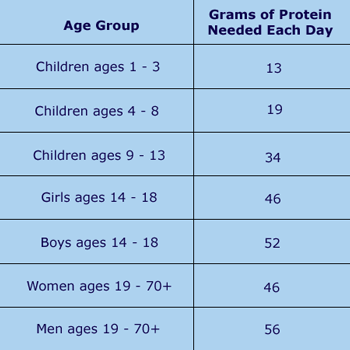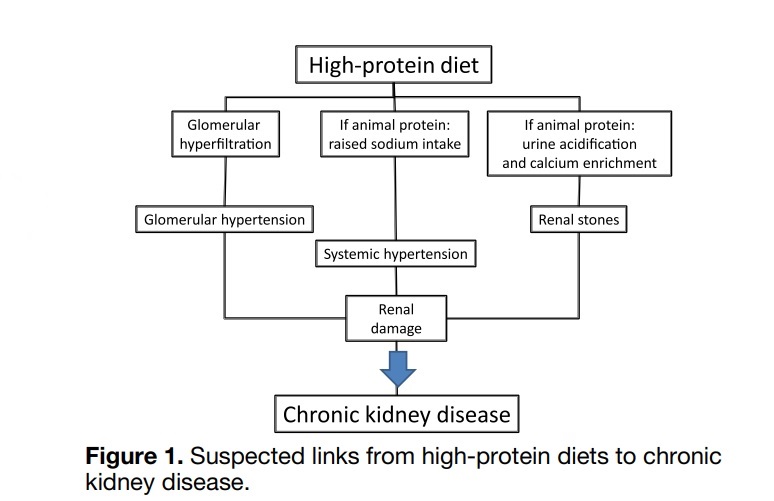A high protein diet has gained immense popularity as people become increasingly health-conscious and fitness-focused. The principles of a high-protein diet involve increasing the proportion of protein-rich foods in the overall diet while moderating the intake of carbohydrates and fats.
Protein is a vital macronutrient that serves as the building block of life, playing a crucial role in tissue repair, muscle development, and various physiological functions. Whether you’re an athlete aiming to enhance muscle growth and recovery or simply seeking to maintain a healthy lifestyle, incorporating a high protein diet can offer numerous benefits.
Protein-rich foods, both from animal and plant sources, form the backbone of a high protein diet. Besides supporting muscle development and repair, a high protein diet can also aid in managing weight by promoting satiety and reducing overall calorie intake. However, it’s essential to strike a nutritional balance by including other essential nutrients like carbohydrates, healthy fats, vitamins, and minerals in your diet. Customizing your protein intake to meet your individual needs, health status, and fitness goals is crucial for maximizing the benefits of a high protein diet.

Some key principles of a high-protein diet include:
Macronutrients: Each macronutrient serves essential roles in the body and plays a significant part in a high-protein diet. Here is an explanation of macronutrients and their importance in the context of a high-protein diet:
- Carbohydrates: Carbohydrates are the body’s primary source of energy. They are broken down into glucose, which fuels various bodily functions, including physical activity and brain function. In a high-protein diet, the focus is to consume adequate but not excessive carbohydrates to support energy needs and maintain glycogen stores for optimal performance during exercise.
- Proteins: Proteins are the building blocks of the body. They are essential for building and repairing tissues, including muscles, bones, and organs. In a high-protein diet, protein intake is increased to support muscle growth, repair, and maintenance.
- Fats: Fats provide a concentrated source of energy and play crucial roles in hormone production, insulation of organs, absorption of fat-soluble vitamins, and cellular function. While fats are not the primary focus of a high-protein diet, they still have an important place in overall nutrition. Healthy fats, such as monounsaturated and polyunsaturated fats found in foods like avocados, nuts, and fatty fish, should be included in moderation to provide essential fatty acids.
- Meal Distribution: Distributing protein intake evenly throughout the day is often recommended to support optimal muscle protein synthesis. This means including protein-rich foods at each meal and snack, rather than consuming most of the protein in one large meal.
- Individualization: The protein needs of individuals can vary based on factors like age, sex, body composition, activity level, and health status. It’s important to consider these factors when determining the appropriate protein intake for an individual.
Benefits of a High Protein Diet
A high-protein diet offers several potential benefits for overall health and specific health goals. Here are some of the key benefits associated with a high-protein diet:
- Weight Management: Protein has a higher thermic effect compared to carbohydrates and fats, meaning it requires more energy to digest, absorb, and metabolize. This can increase satiety and contribute to feelings of fullness, potentially helping with appetite control and weight management.
- Metabolism and Energy Expenditure: Protein has a higher thermogenic effect compared to carbohydrates and fats, meaning it increases the body’s energy expenditure during digestion and absorption. This can contribute to a slightly higher metabolic rate, potentially supporting weight management efforts.
- Blood Sugar Regulation: Protein can help regulate blood sugar levels by slowing down the absorption of glucose and reducing insulin spikes after meals. This can be particularly beneficial for individuals with diabetes or those looking to stabilize their blood sugar levels.
- Bone Health: Adequate protein intake, in combination with other essential nutrients like calcium and vitamin D, plays a crucial role in maintaining bone health and reducing the risk of osteoporosis.
- Sports Performance and Recovery: Protein is important for athletes and individuals engaging in regular exercise. A high-protein diet can support muscle recovery, enhance exercise performance, and improve strength and endurance.
Importance of Protein in Bodybuilding
- Muscle Protein Synthesis: Protein is the primary nutrient required for muscle protein synthesis, the process through which muscle fibers are built and repaired. Consuming an adequate amount of protein provides the necessary amino acids to support this process and promote muscle growth.
- Muscle Recovery: Intense resistance training during bodybuilding workouts leads to muscle damage. Protein intake after exercise helps to facilitate the repair and recovery of damaged muscle fibers, allowing for muscle growth and adaptation.
- Muscle Preservation during Caloric Deficits: During periods of cutting or calorie restriction to reduce body fat, maintaining muscle mass is crucial. Adequate protein intake helps preserve muscle tissue while promoting fat loss, preventing muscle breakdown, and maintaining a leaner physique.
- Satiety and Appetite Control: Protein-rich foods tend to be more satiating, meaning they can help you feel fuller for longer periods. This can aid in appetite control and prevent overeating, supporting adherence to a balanced diet and achieving body composition goals.
- Nutrient Timing and Anabolic Window: Consuming protein within the post-workout anabolic window (typically within 1-2 hours after training) can maximize muscle protein synthesis and optimize muscle recovery. This highlights the importance of timing protein intake to capitalize on the body’s increased sensitivity to nutrient uptake following exercise.
Protein Sources and Recommendations:
Animal-Based Protein Sources:
- Meat: This includes beef, chicken, pork, lamb, and other types of animal meat. They are rich in high-quality protein and provide essential amino acids.
- Poultry: Chicken, turkey, and duck are lean sources of protein that are commonly consumed.
- Fish and Seafood: Fish such as salmon, tuna, trout, and sardines are excellent sources of protein, as well as omega-3 fatty acids.
- Eggs: Eggs are a versatile protein source and provide all essential amino acids.
- Dairy Products: Milk, yogurt, cheese, and other dairy products contain protein, as well as essential nutrients like calcium.
Plant-Based Protein Sources:
- Legumes: Beans, lentils, chickpeas, and peas are excellent sources of plant-based protein, fiber, and other beneficial nutrients.
- Soy Products: Tofu, tempeh, and edamame are complete protein sources derived from soybeans.
- Quinoa: Quinoa is a grain-like seed that is high in protein and contains all essential amino acids.
- Nuts and Seeds: Almonds, peanuts, walnuts, chia seeds, flaxseeds, and hemp seeds provide protein, healthy fats, and other nutrients.
- Plant-Based Protein Powders: Pea protein, rice protein, and hemp protein powders are popular options for those seeking additional protein supplementation.
Recommended Daily Protein Intake for Various Individuals and Athletes
The recommended daily protein intake can vary depending on factors such as age, sex, body weight, activity level, and specific goals. Here are some general guidelines for protein intake for different individuals:
- Sedentary Individuals: Sedentary individuals with minimal physical activity typically require around 0.8 grams of protein per kilogram of body weight per day. This amount is sufficient to meet basic protein needs.
- Recreational Exercisers: Those who engage in regular physical activity or recreational exercise may benefit from a slightly higher protein intake. A range of 1.0 to 1.2 grams of protein per kilogram of body weight per day is often recommended for this group.
- Endurance Athletes: Endurance athletes, such as long-distance runners or cyclists, require additional protein to support their training and recovery. Recommendations typically range from 1.2 to 1.4 grams of protein per kilogram of body weight per day.
- Strength and Power Athletes: Athletes involved in strength training, bodybuilding, or power-based sports require higher protein intake to support muscle growth, repair, and recovery. Recommendations usually range from 1.4 to 2.0 grams of protein per kilogram of body weight per day.

Exercise Performance: Timing and distribution of protein intake for optimal results
The timing and distribution of protein intake are important for maximizing the benefits of protein on muscle synthesis, recovery, and overall results. Here are some key considerations:
- Spread Protein Intake Throughout the Day: To optimize muscle protein synthesis, it is recommended to distribute protein intake evenly throughout the day, rather than consuming most of it in one or two meals. Aim to include a source of protein in each meal and snack. This approach ensures a consistent supply of amino acids for muscle repair and growth.
- Pre-Exercise Protein: Consuming protein before exercise can help prime the body for muscle protein synthesis and provide amino acids for fuel during the workout. Choose easily digestible protein sources, such as a protein shake or yogurt, consumed 1-2 hours before exercise.
- Post-Exercise Protein: Consuming protein shortly after exercise is crucial for maximizing muscle recovery and repair. The post-exercise period is a time of increased muscle sensitivity to protein, enhancing muscle protein synthesis. Aim to consume a protein-rich meal or snack within 1-2 hours after exercise. Whey protein, in particular, is effective in stimulating muscle protein synthesis.
- Bedtime Protein: Protein intake before bedtime has been shown to enhance overnight muscle protein synthesis and recovery. Slow-digesting protein sources, such as casein or Greek yogurt, can provide a sustained release of amino acids throughout the night. This can be particularly beneficial for athletes or individuals engaged in intense training.
- Protein Distribution for Vegetarians/Vegans: Vegetarian and vegan athletes can achieve optimal protein distribution by combining different plant-based protein sources throughout the day. Pairing complementary plant proteins, such as legumes and grains, can provide a complete amino acid profile and support muscle protein synthesis.
- Consistent Protein Intake: Consistency in protein intake is key for optimal results. Aim to meet your daily protein needs consistently rather than relying on sporadic high-protein meals. This ensures a steady supply of amino acids for muscle repair and recovery.
Diets high in protein from meat and dairy products may have negative consequences due to factors such as hyperfiltration (increased blood flow through the kidneys), hypertension (high blood pressure), and an increased risk of urinary stone formation.

Integration With Other Dietary Approaches
Protein intake can be adapted to different dietary approaches. For the ketogenic diet, moderate protein intake is important, focusing on low-carbohydrate sources like fatty cuts of meat and high-fat dairy. In the Mediterranean diet, protein can come from fish, lean poultry, legumes, nuts, and seeds. Flexitarian diets prioritize plant-based proteins with occasional meat consumption. Adjusting protein sources according to the specific dietary approach ensures protein needs are met while aligning with individual preferences and goals.
Excessive Protein Consumption: Potential Risks and Side Effects
- Kidney Function: The kidneys are responsible for filtering waste products and excess substances, including nitrogen, from the blood. High protein intake increases the production of nitrogenous waste, which can put extra strain on the kidneys. Individuals with pre-existing kidney issues may be particularly susceptible to kidney function impairment when consuming excessive protein.
- Bone Health Concerns: Some studies suggest that a diet high in animal-based protein (such as red meat) may lead to increased acid load in the body, which, in turn, could prompt the body to release calcium from the bones to help buffer the acid. Over time, this calcium loss could potentially weaken bones and increase the risk of osteoporosis.
- Dehydration: High protein intake may result in increased water loss through urine. This effect could lead to dehydration if adequate water intake is not maintained.
- Gastrointestinal Issues: Consuming excessive protein, particularly from certain sources, may lead to digestive problems, such as constipation, bloating, and flatulence.
- Weight Gain: While high-protein diets are often associated with weight loss due to their appetite-suppressing effect, consuming excess calories from protein can lead to weight gain, just like consuming excess calories from any other macronutrient.
- Nutrient Imbalance: Relying heavily on protein sources may result in an inadequate intake of other essential nutrients found in fruits, vegetables, and whole grains.
- Risk of Chronic Diseases: Some studies have suggested a potential link between diets high in animal-based proteins and an increased risk of certain chronic diseases, such as certain cancers and cardiovascular conditions.
Addressing Myths on Protein Intake and Muscle Growth
Myth: “More protein is always better for muscle growth.”
Fact: While protein is important for muscle growth, consuming excessive amounts of protein beyond your body’s needs does not necessarily lead to more muscle gain. There is an upper limit to how much protein the body can effectively utilize for muscle synthesis. Consuming protein within the recommended range based on your body weight and activity level is sufficient for muscle growth.
Myth: “All protein sources are equally effective for muscle building.”
Fact: Different protein sources have varying amino acid profiles and digestion rates, which can impact muscle protein synthesis. Animal-based proteins, such as whey and casein, are considered high-quality proteins due to their complete amino acid profiles and rapid digestion. However, plant-based protein sources, when combined to provide a complete amino acid profile, can also support muscle growth.
Myth: “Protein must be consumed immediately after a workout to maximize muscle growth.”
Fact: While consuming protein shortly after a workout can be beneficial, the body has a window of several hours, not just minutes, to utilize protein for muscle repair and growth. As long as you meet your daily protein needs, the exact timing of protein consumption within the post-workout period is not as critical as overall daily protein intake.
Myth: “You need protein supplements to build muscle.”
Fact: While protein supplements can be convenient and help meet protein needs, they are not necessary to build muscle. A well-balanced diet that includes a variety of protein-rich foods can provide all the necessary amino acids for muscle growth. Whole foods should always be the foundation of your nutrition, and supplements should be used as a supplement, not a replacement when needed.
Common FAQs on High Protein Diet
Is it safe to follow a high-protein diet for a long period?
A high-protein diet can be safe if balanced and accompanied by a variety of other nutrients, but it’s important to consult with a healthcare professional for individualized guidance.
Why is a high-protein diet popular among bodybuilders and athletes?
A high-protein diet supports muscle repair, growth, and recovery, helps maintain lean body mass, and provides essential amino acids for optimal performance.
Are there specific types of protein that are more beneficial for bodybuilders and athletes?
Animal-based proteins, such as whey and casein, are often favored due to their complete amino acid profiles and rapid digestion, but plant-based proteins can also be effective when combined to provide all essential amino acids.
Can a high-protein diet help with reducing muscle soreness and promoting faster recovery?
Adequate protein intake is important for muscle repair and recovery, which may help reduce muscle soreness and support faster recovery after intense exercise.
Should bodybuilders and athletes prioritize protein intake over other macronutrients?
Protein is important, but a well-rounded diet that includes carbohydrates and healthy fats is crucial for overall performance, energy, and nutrient balance.
Can a high-protein diet interfere with hydration levels and kidney function?
Adequate hydration is essential when consuming a high-protein diet to support kidney function and prevent dehydration, so it’s important to drink plenty of water.









